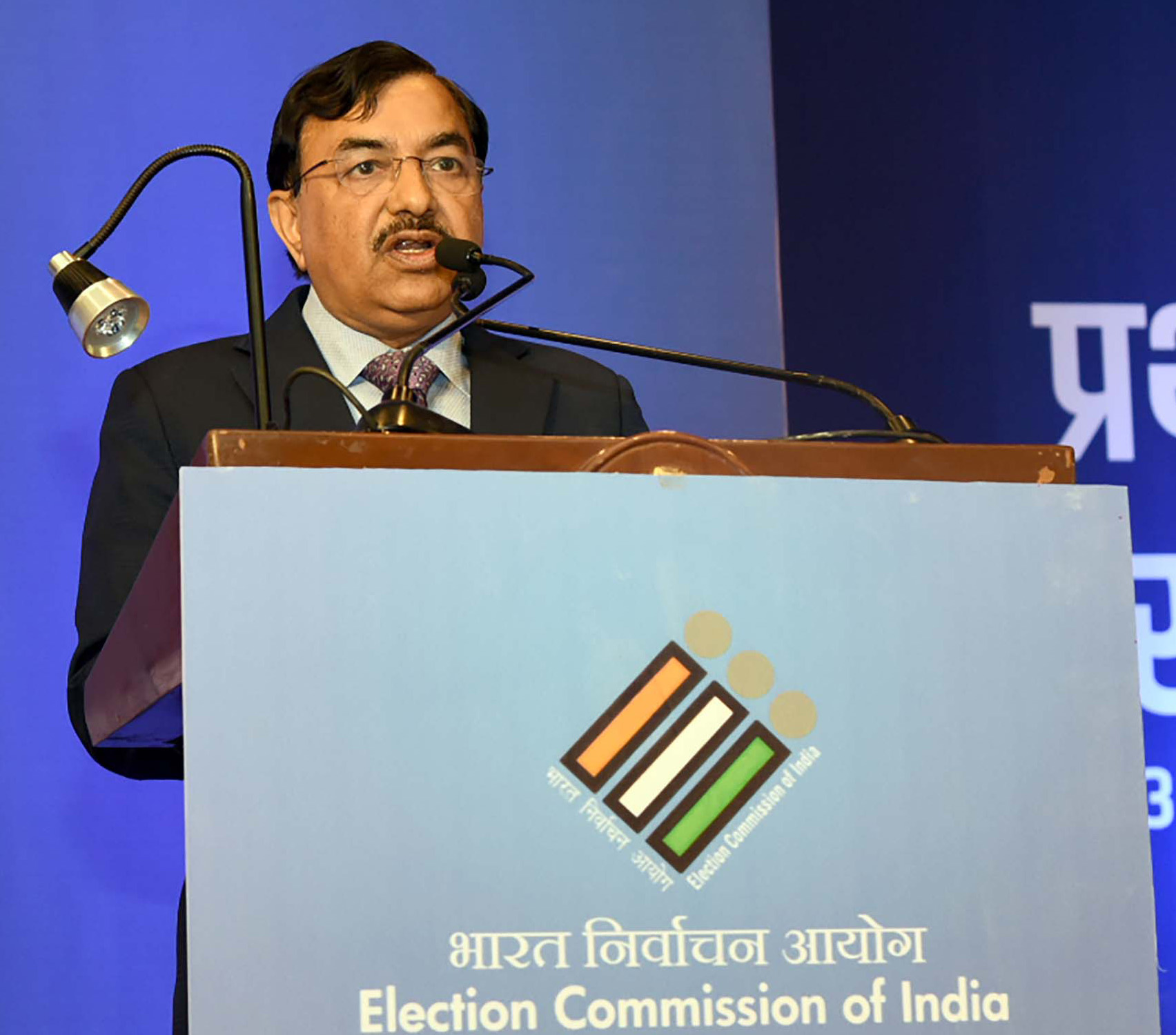Meeting with PMO: Election Commission has failed India

Election Commission has denied that Shushil Chandra or other commissioners attended the meeting called by P K Mishra, but admits to 'informal discussions' (Photo: PIB)
For decades, the Prime Minister’s Office in India has functioned as the most important body in the executive, often far more powerful than even the senior most cabinet ministers. In many ways, it is important for the Prime Minister to have an empowered PMO, not only to help the PM of the day in keeping his flock in line, but also get some of the bottlenecks removed without the direct involvement of the PM.
While the PMO’s involvement in governance has always been important, but rarely has a PMO been used as a conduit to weaken the other key pillars of Indian democracy. That questionable tag truly belongs to the current PMO which has emerged as the most important kitchen cabinet in India, perhaps even more than the PMO during Indira Gandhi’s tenure. While Gandhi had ministers in her cabinet who were at least local leaders with a strong base, in the current cabinet led by Modi there are hardly any ministers who can win elections on their own or are even known to their constituents, riding mainly on Modi’s coattails. Thus, it is hardly any surprise that every single file in every ministry, irrespective of its importance, is approved by the PMO before even the senior cabinet members can talk of them.
While the weakness of the Cabinet leads to a bottleneck as files pile up at the PMO, it is more of a problem for the government and less for the nation. But it becomes a national problem if other pillars of the Indian democracy also start behaving as members of the Cabinet.
The unusual meeting that was chaired by P K Mishra, Principal Secretary in Prime Minister’s Office, and which was attended by Chief Election Commissioner of India, as if he were a junior bureaucrat serving under the PMO, has raised serious doubts about the ability of the Election Commission to guard its independence and fulfill its constitutional duties without any fear or favour, as mandated by the Constitution.
Though the EC has denied that Chandra or other commissioners attended the meeting called by Mishra, they admitted that the three had attended an ‘informal’ meeting with Mishra, leaving little to the imagination on how the EC let the PMO roughshod on its independence.
The EC has always remained distanced from the government in order to protect its autonomy and also to be perceived as being truly autonomous body and when it is needed, the interactions with the government are called for and supervised by the EC and not the other way around as was done now.
At least five former CECs immediately criticised the incumbent for having succumbed to the government pressures. The CECs say that any interaction is always conducted within the Election Commission offices and governments officials come to them for any discussions rather than summoning them.
“This is unacceptable… Would the government call the Chief Justice of India along with all other Supreme Court judges for a discussion on judicial reforms? That’s the only analogy that applies in this case. So why call the (Election) Commission for a meeting? Even the Prime Minister cannot call the CEC for a meeting,” the former CEC S Y Quraishi was cited by a newspaper as saying.
While Chandra may have set a new low for CECs in India, but he is not the first one to bend to the whims and fancies of the current government. Indeed, there have been many instances since 2014 of the EC turning a blind eye to flagrant violation of its authority not only by Modi or his senior ministers, but also by a large number of tier II and tier III leaders of the ruling party.
When the elections to West Bengal Assembly were announced earlier this year, the EC was accused of helping the BJP by stretching the poll to an unprecedented eight-phases, spread over almost five weeks, giving it the tag of the longest ever state assembly election in India, even though Bengal is far from being the biggest state.
The opposition leaders as well as the media said that the breaking the election into so many phases was absolutely unnecessary, but was done only to help the BJP by allowing Modi and other key leaders of the party to campaign more frequently and literally through the entire election as they criss-crossed the state especially on the day votes were being cast at some place or the other.
The instances are aplenty, be it of allowing the misuse of official machinery, pulling up BJP for its rabble-rousing virulent propaganda or raids on opposition leaders and their supporters just before or during the elections.
The EC has also failed to check misuse and abuse of social media by the ruling party in terms of spreading fake news or conducting electioneering right through the casting of votes. The commission has also failed to do its job in terms of keeping a check on election expenses, especially since the introduction of the electoral bonds that have clearly benefitted the BJP far more than any other party and have removed even the little transparency that existed earlier about how much each party and each candidate was spending on elections.
After such a dismal show over so many years, it would indeed be unrealistic to expect the election panel to start performing its Constitutional duties in the way that it ought to – transparently and without any fear or favour. But the election commission, along with the judiciary, remains the only two bodies with power to stop the massacre of democracy that has been going in for the past seven years in India.









